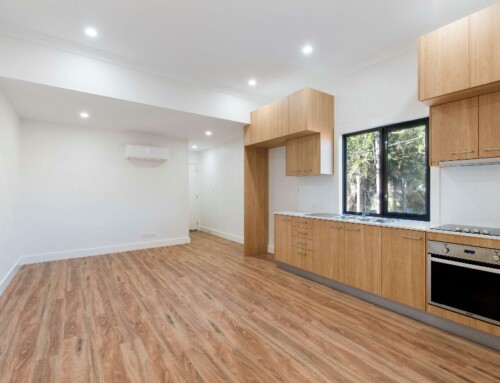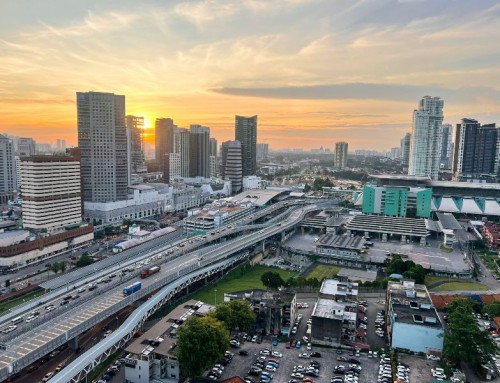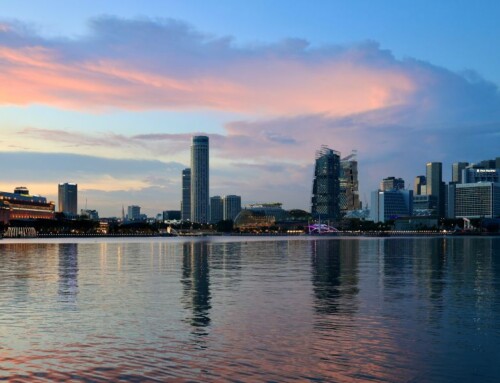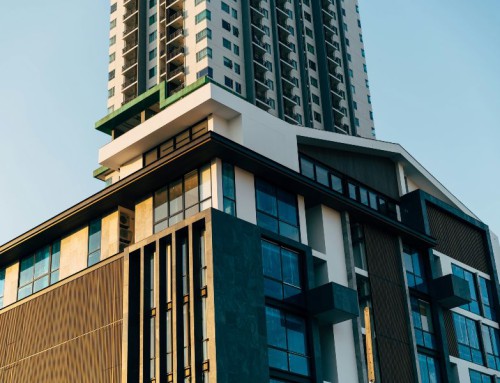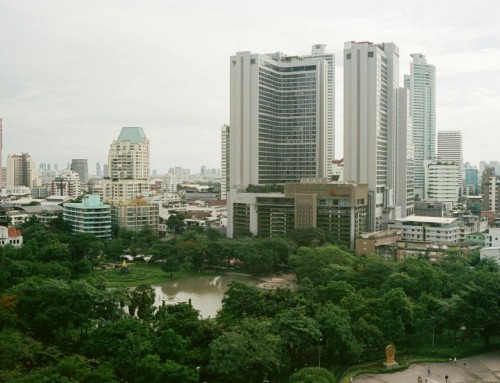This guide may come in handy for all those who would like to purchase an Executive Condominium. Executive Condominium, or EC for short, are a type of housing in Singapore. First built in 1994, EC is a hybrid between public (government subsidised) and public housing. They resemble private condominium developments and are enclosed within a guarded and gated compound just like most normal private condominiums. Developers who build ECs can only sell them to Singaporeans. After the initial buyer has stayed in the unit for five years, he can then sell his EC to a Singaporean or a Singapore Permanent Resident. Once the development reaches ten years old, it can be sold to foreigners as well.
What are the eligibility conditions?
Overview of eligibility conditions
| Family nucleus | You will need to qualify for the EC under one of these eligibility schemes: - Public Scheme - Fiancé/Fiancée Scheme - Orphans Scheme - Joint Singles Scheme |
| Citizenship | - You must be a Singapore Citizen - At least 1 other applicant must be a Singapore Citizen or Singapore Permanent Resident - All singles must be Singapore Citizens if applying under the Joint Singles Scheme |
| Age | - At least 21 years old - At least 35 years old, if applying under the Joint Singles Scheme |
| Income ceiling | Your household income must not exceed the $14,000 income ceiling. |
| Property ownership | - You do not own other property overseas or locally, or have not disposed of any within the last 30 months - You have not bought a new HDB/ DBSS flat or EC, or received a CPF Housing Grant before; or, have only bought 1 of these properties/ received 1 CPF Housing Grant thus far |
Which eligibility scheme do I apply under?
Public Scheme
You form a family nucleus with any of the following:
- Spouse, and children (if any)
- Parents, and siblings (if any)
- Children under your legal custody, care, and control (for widowed/ divorced applicants)
No change of people listed in the application
Applications under this scheme are only valid if there are no changes to the people listed – you are not allowed to replace your parents’ names with that of a spouse, or vice versa.
If applying for a dual-key EC as a multi-generation family
A multi-generation family is any of the following:
- Married/ engaged couple and parents/ grandparents
- Widowed/ divorced with children and parents/ grandparents
Fiancé/Fiancée Scheme
You form a family nucleus with your spouse-to-be.
Submission of marriage certificate
Under this scheme, you need to submit a copy of your marriage certificate to the developer.
| If You: | Submit Copy of Marriage Certificate: |
| Applied for a CPF Housing Grant | Before taking possession of your EC |
| Did not apply for a CPF Housing Grant | Within 3 months of taking possession of your EC |
Written parental consent needed if spouse-to-be is 18 years old and above, but below 21
- That person can only be listed as an essential occupier in the flat application
- Written consent from that person’s parents/ guardians must be submitted during the EC selection appointment.
Special Marriage Licence needed if spouse-to-be is below 18 years old
Following your flat application, you must obtain a Special Marriage Licence from the Ministry of Social and Family Development and submit it to us during the EC selection appointment.
No change of people listed in the application
Applications under this scheme are only valid if there are no changes to the people listed. That means that, in cases of break-up, you are not allowed to later put in the name(s) of a new spouse-to-be or of your parents in the application, even if the previous spouse-to-be agrees.
If applying for a dual-key EC as a multi-generation family
A multi-generation family is any of the following:
- Married/ engaged couple and parents/ grandparents
- Widowed/ divorced with children and parents/ grandparents
Orphans Scheme
You and your siblings (those applying) are orphans and single (unmarried, divorced, or widowed)
- All of the siblings that are single must be listed in the same application
- At least 1 of the deceased parents was a Singapore Citizen or Singapore Permanent Resident
Note that under the Orphans Scheme, siblings are not allowed to buy or rent flats separately.
Joint Singles Scheme
You and up to 3 other co-applicants, and all of you are:
- Single (unmarried, divorced, or widowed)
- Singapore Citizens
- At least 35 years old
- Applying jointly as co-applicants
The CPF Housing Grant for singles is not available when buying an EC.
What is the income ceiling?
Your average gross monthly income must not exceed $14,000.
What income documents must I submit?
Income documents to prepare
You and any other applicants and essential occupiers will need to prepare:
- Latest 3 months’ payslips if employed full-time
- 12 months’ of income documents for other employment types
- Proof of unemployment if not working
Specific documents are needed depending on your nature of employment. Also, please note that some forms of income/ allowance are not included when assessing your household income.
Aside from these documents, the developer may also request further documentation if needed.
| Nature of Employment | Documents to Submit | Notes |
| Employed person | - Latest 3 months’ payslips, i.e. month of application and preceding 2 months or - Letter from employer certifying salaries for the month of application and the preceding 2 months; the letter must contain the: - Company stamp/ letterhead - Certifying officer’s name, signature, and designation | - Assessment is based on the average gross monthly income, which: - Excludes bonuses and income earned from overtime work - Includes allowances (fixed/ variable) received on a regular basis (e.g. allowances for food, transport, laundry, uniform, etc) - Notice of Assessment (NOA) from the Inland Revenue Authority of Singapore (IRAS) is not accepted |
| Self-employed person | - Latest NOA from IRAS or Statement of Annual Accounts certified by an audit firm and - Valid Accounting and Corporate Regulatory Authority (ACRA) Computer Information (Business Profile) or valid licence of trade | Assessment is based on the average gross monthly income for the past 12 months |
| Part-time worker | - Latest 12 months’ payslips or - Letter from employer certifying salaries for the last 12 months; the letter must contain the: - Company stamp/ letterhead - Certifying officer’s name, signature, and designation | Assessment is based on the average gross monthly income for the past 12 months |
| Commission-based person | - Latest 12 months’ commission statements/ payslips or - Letter from employer certifying salaries for the last 12 months; the letter must contain the: - Company stamp/ letterhead - Certifying officer’s name, signature, and designation | Assessment is based on the average gross monthly income for the past 12 months |
| Odd job worker | Latest NOA from IRAS And Previous year’s NOA from IRAS | Assessment is based on the average gross monthly income for the past 12 months |
| Unemployed person (between 18 to 62 years old) | - Statutory Declaration to declare the employment status or valid Student Pass if currently a full-time student - If unemployed for less than 3 months, the following documents are required: - Income proof for the preceding months from the previous employer stating their gross monthly income and last day of service - Latest 15 months’ CPF contribution history | - The Statutory Declaration can be executed at the HDB Hub Loans Counter or any HDB Branch. Declarants are required to bring along their Identity Cards - If not in Singapore, the Statutory Declaration can be made in the presence of a Commissioner for Oaths or Notary Public for that country |
Income/ allowance that will be considered for the income ceiling
- Allowances (fixed/ variable) received on a regular basis (e.g. allowances for food, transport, laundry, uniform, etc.)
- Pension
- Stipend
- Sustenance
Income/ allowance not considered for the income ceiling
- Alimony allowance
- Bonuses
- Director fees
- Income from overtime work income
- Interest from deposit accounts
- National Service Allowance
- Rental income
- Scholarship overseas allowance
What if I am an undischarged bankrupt?
You need to obtain the consent of the Official Assignee if you are applying for an EC. There is no need to do so if you are to be listed as an essential occupier.
Am I a first or second-timer applicant?
First-timer applicant
First-timers enjoy privileges and priority in flat allocation.
Yours will be treated as a first-timer application if you and any of the other listed owners and essential occupiers meet the following criteria:
- Not the owner of a flat bought from HDB, or an EC/ DBSS flat bought from a developer
- Not sold a flat bought from HDB, or an EC/ DBSS flat bought from a developer
- Not received any CPF Housing Grant for the purchase of an HDB resale flat
- Not taken any form of housing subsidy (e.g. benefitted under the Selective En bloc Redevelopment Scheme (SERS) or HUDC estate privatisation)
If you are a second-timer and your spouse/ spouse-to-be is a first-timer, you will be glad to know that you and your spouse/ spouse-to-be will enjoy first-timer privileges and priority as a couple.
Second-timer applicant
- Have owned or sold any of the following:
- HDB flat bought from HDB
- Resale flat bought using a CPF Housing Grant
- EC/ DBSS flat bought from the developer
- Once taken some form of housing subsidy (e.g. benefitted under the Selective En bloc Redevelopment Scheme (SERS), HUDC estate privatisation)
Are there any time periods during which I cannot apply for an EC?
Yes. There are instances where you may need to wait out a set time period before you can apply or be listed in the application for a new EC. This usually happens when someone:
- Has not yet met a current flat/ EC’s Minimum Occupation Period (MOP)
- Is a divorcee
- Has previously cancelled an HDB flat application or terminated the Sale and Purchase Agreement for a DBSS flat/ EC
MOP requirements: current owner of a flat/ EC
Before applying for the new EC, do you or any other flat applicants and essential occupiers to be listed in the flat application own any of these?
- Flat bought from HDB
- Resale flat bought with a CPF Housing Grant
- DBSS flat/ EC bought from the developer
If so, that person must have already met that flat/ EC’s 5-year MOP before being allowed to apply for a new EC.
In the case of current/ prior EC ownership, you must also wait out a 30-month period from the EC’s effective date of disposal as evidenced by your Notice of Transfer, or any other such documentation requested.
| Type of Property Owned | Time Period Before You Can Apply for a New EC |
| - HDB flat bought from HDB - Resale flat bought with a CPF Housing Grant - DBSS flat bought from the developer | MOP of 5 years |
| EC bought from the developer | MOP of 5 years + 30 months from date of EC disposal |
MOP requirements: essential occupier of a flat/ EC
An essential occupier of the following must have already met that flat/ EC’s 5-year MOP before being allowed to be listed in a new EC application, whether as an owner or essential occupier:
- Flat bought from HDB
- Resale flat bought with a CPF Housing Grant
- DBSS flat/ EC bought from the developer
| Essential Occupier In: | Time Period Before You Can Apply for a New EC |
| - HDB flat bought from HDB - Resale flat bought with a CPF Housing Grant - EC/ DBSS flat bought from the developer | MOP of 5 years |
Divorcee
In case of a divorce, conditions will apply for the following types of property:
- Flat bought from HDB
- Resale flat bought with a CPF Housing Grant
- DBSS flat/ EC bought from the developer
3-year wait-out period
- For 3 years from the date of the divorce, only 1 party in the divorce can own any of the above properties
- If any of the above properties was the matrimonial home and is now owned by your ex-spouse, you must wait for 3 years before you can buy or be listed as an essential occupier in one
- If the matrimonial home was not one of the above, or if there was no matrimonial home, 1 party can apply for the abovementioned property types. However, the other party must first undertake to not own or be listed as an essential occupier of said properties for 3 years from the date of the divorce
Exception
There is no need for any 3-year wait-out period or undertaking if you are:
- Buying one of the above properties with your parents and/ or new spouse
- A parent meeting these conditions:
- All of your children are aged below 18 at the date of the divorce
- All the children are under your legal custody and you are the only parent given the care and control of your children
Assistance
For flat applications, priority flat allocation can be given under our Assistance Scheme for Second-Timers (Divorced/Widowed Parents) (ASSIST).
Cancelled an HDB flat application after booking a flat
If you booked a new HDB flat and subsequently cancel your booking, you must wait out a 1-year period from the date of the cancellation before you can apply or be listed as an essential occupier of a:
- New HDB flat
- DBSS flat/ EC bought from a developer
- Resale flat bought using a CPF Housing Grant
- Resale flat announced for SERS
Terminated the Sale and Purchase Agreement for an EC/ DBSS flat
If you had previously bought a DBSS flat/ EC using a CPF Housing Grant and subsequently terminated the Sale and Purchase Agreement, you must wait out a 5-year period from the date of the termination before you can apply or be listed as an essential occupier of an EC.
Can I get a new EC flat if I used to/ still own or have full/partial interest in a local/ overseas non-HDB property?
No, you may not. For an EC flat application, all the listed owners and essential occupiers must not own, dispose, or have an estate or interest in any other local or overseas property:
- Within 30 months before the date of the EC application, and up to the date of taking possession of the EC
The properties considered in this instance include but are not limited to:
- HUDC flats (privatised and non-privatised)
- Properties acquired by gift
- Properties inherited as beneficiaries under a will or as a result of the Intestate Succession Act
- Private property
- Properties owned, acquired, or disposed through nominees, regardless of properties’ location
Can I get a new EC if I used to/ still own an HDB flat, DBSS flat, or EC?
Yes, provided that you only own/ owned 1 of the following units prior to your application:
- Flat bought from HDB
- EC/ DBSS flat bought from the developer
- HDB resale flat bought using a CPF Housing Grant (only applies to first-timer applicants)
In essence, an eligible Singapore Citizen is allowed to buy the above properties twice in total, not twice per type of property.
If you have already bought 2 such properties, you will not be eligible to apply for an EC or be listed as an essential occupier in an application.
Source: www.hdb.gov.sg
You may be keen in the following Executive Condominiums.
- The Brownstone (Canberra/ Sengkang) http://www.lovelyhomes.com.sg/thebrownstone/
- The Visionaire (Canberra/ Sembawang) http://www.lovelyhomes.com.sg/thevisionaire/
- Wandervale (Choa Chu Kang) http://www.lovelyhomes.com.sg/wandervale/
Do visit the various links to know more about the various executive condominiums on offer.
Yours Sincerely,
Daryl Lum
www.daryllum.com

